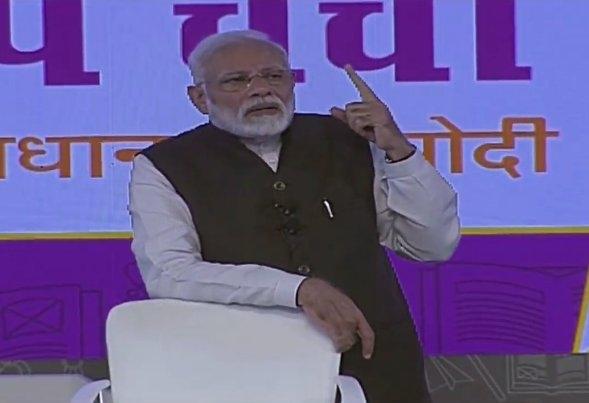
Narendra Modi government's announcement that the Union budget 2019 will be the interim budget rules out the launch of programmes needing massive financial commitments in Friday's budget speech.
However, observers expect some trappings of an election-year financial proposal from the government in the budget that Railway and Coal Minister Piyush Goyal will present. He will be doing so in place of ailing Finance Minister Arun Jaitley.
There is a consensus among economists that the budget will target 7.5 per cent growth in the gross domestic product (GDP) for FY20 as against the estimated 7.2 per cent for FY19 that will end on March 31. It was a tad higher than the previous FY18's 6.7 per cent failing much higher growth projections.
Some expect the budget to hint at some massive programmes for the rural sector, especially the farming community. This move will be in hope of arresting the rural drift away from the Bharatiya Janata Party (BJP) that helms the ruling National Democratic Alliance (NDA) at the centre.
The talk of a programme to ensure a universal basic income for the poor that gathered momentum recently after Congress president Rahul Gandhi, who heads the main opposition United Progressive Alliance (UPA), promised it if elected to power.
The Amit Shah-led BJP's recent unflattering performance in the state elections including the Hindi heartland states of Rajasthan, Madhya Pradesh and Chhattisgarh has hammered home the need for a policy shift to the villages. In these states, the Congress formed governments with the help of opposition parties.
This is especially so after the apparent disenchantment among the party's core constituencies of small and medium businesses hit by the demonetisation and the hurried introduction of the goods and services tax (GST) in July last year.
The general perception that the government could not live up to its promise of creating more employment, despite it being a major election plank, is likely to inform the budget with about 8 per cent increase in spending on the labour-intensive infrastructure projects like railway, roads and ports, media reports say.
Here is a preview of the likely sector-wise proposals that the budget may unveil:
Agriculture
The proposals could contain a major farm relief package that could have huge financial implications on the next government running into billions of rupees. Though the full allocation is unlikely in this budget, it could leave enough indications of the likely extent.
The government is belatedly coming around to the need for addressing the poor, especially among the rural communities. This could impose a burden of up to Rs 2 trillion, especially for food subsidies.
The budget is expected to waive premium for food crop insurance.
IT/telecom
The budget could target better digital infrastructure in rural areas.
Start-ups could benefit from a withdrawal of the 'angel tax' seen as an impediment to investors.
The sector is looking forward to GST exemption for spectrum and licence fee payouts and reduction in spectrum fees. Telecom equipment import duty could also be reduced.
Divestment
The government could set a steep asset sales target of about $11 billion in FY 2019-20.
Potential candidates for stake sales/initial public offerings (IPO) are Telecommunications Consultants India, Indian Railways' subsidiaries like IRCTC, RailTel Corp India and National Seeds Corp.
Health
The government would want to build on the promise of Ayush Bharat with a substantial allocation for health.
Taxes
The corporate world anticipates a tax rate cut of up to 5 per cent
Higher direct tax exemptions are likely to benefit the middle class and small businesses
Banks
The advances to the micro, medium and small enterprises (MSME) sector could benefit from rebate on loans.
The public-sector general insurers could also benefit from a massive recapitalization.








